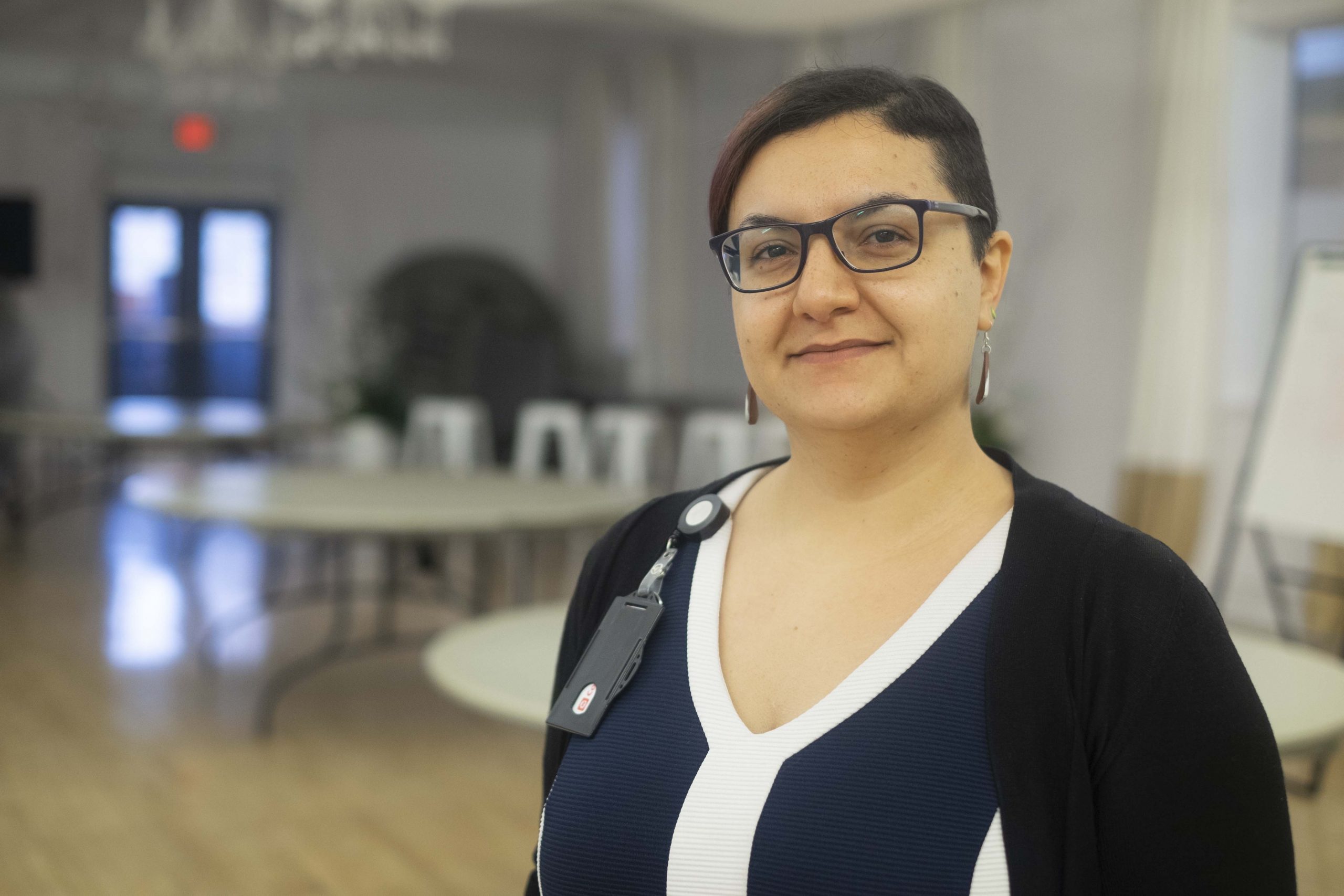Trauma-Informed Services for LGBTQ2S Communities
December 31, 2019

“One thing we all have in common is the experience of being human – of having the dream to have a safe, fulfilling life. That for me is the point where we can all connect.”
In conversation with Forouz Salari, Manager of Direct Services at The 519.
Forouz Salari, our Manager Direct Services, oversees many programs including the LGBTQ refugee and newcomer support, and trauma-informed counselling – both programs facing high demand, and a significant dearth of funding.
Why is the need for LGBTQ-focused refugee and settlement support so critical?
There are many settlement support services in Toronto. But LGBTQ refugees and newcomers experience additional barriers to settlement, especially because there’s so much stigma and discrimination worldwide around identifying as LGBTQ2S. They also face homophobia/transphobia/biphobia/racism and other forms of discrimination socially and systemically in Canada, amplifying the barriers to settlement that refugees experience. To bridge the gap, it is essential to have settlement supports and programs specific to LGBTQ-identified refugees and newcomers to respond effectively to their needs and support them for success. To have that space where folks can come in and have their gender identity, gender expression, and sexual orientation validated, acknowledged, appreciated, and celebrated, when they may never have had that opportunity before in their lives.
What does the success of the LGBTQ refugee support program mean to you?
I think success would mean being able to expand our capacity to serve our communities.
We are currently working with the limited capacity due to the funding we have, serving close to 1,500 new refugee claimants every year. At any point in time, we have 300-400 people on the waitlist to access our refugee programs. We have 600-900 active claimants seeking support services, and to meet those needs we need more resources. We need to continue building our capacity to serve.
What vision do you have for this program?
It would be fantastic to be able to build capacity and competence across the settlement sector to work with LGBTQ-identified refugees and newcomers. The number of LGBTQ refugees and newcomers coming to Canada is increasing because of the stigma, discrimination, and violence against queer and trans people across the world. We need more funding to increase our own capacity, and then to further train, consult with, and support fellow social service providers across the sector to be able to meet the needs of refugees and newcomers.
What is the significance of our trauma-informed counselling services for LGBTQ2S communities?
Underserved LGBTQ2S communities have experiences of trauma, discrimination, and violence. The impacts of experiences of homophobia, biphobia, transphobia, racism, and xenophobia tend to be accumulative and progressively devastating. It is important to understand that trauma includes those accumulative ongoing experiences of discrimination or violence that our communities face at much higher proportions than the average population.
Hence their counselling needs are more unique, because they have intersectional marginalized identities, and have experienced intersectional forms of identity-based trauma that need support, validation, and healing.
Where does the gap exist when it comes to providing trauma-informed counselling support to our communities?
The obvious gap is funding. We need more capacity, especially considering the growing community needs. In order to serve our communities including older LGBTQ2S adults, and community members experiencing chronic poverty, food and housing insecurity, LGBTQ refugees, and marginalized trans communities, we need more support from our donors and funders to invest in mental health supports.
What would you like to say to our donors?
Sometimes it is hard to relate to others’ experiences that are not similar to our own lived experience. But one thing we all have in common is the experience of being human – of having the dream to have a safe, fulfilling life. That for me is the point where we can all connect.
Impact Stories
June 2025
One Among Us: a community for East-Asian and East-Asian Canadian trans and gender-diverse people
April 2025
Remembering Jake: The Volunteer Who Fostered Belonging
December 2024
Honouring Their Names, Honouring Their Stories
September 2024
Norie: Don't Hide Who You Are, Let's Be Proud!
Finding safe spaces for 2SLGBTQ+ youth at The 519’s Youth Action and Arts Space.
August 2024
Jaris Swidrovich: Lifting up unexpected perspectives on The 519 board
June 2024
Sush: Cooking with Salt, Pepper, and Love!
Volunteering with Abuelita Norma
May 2024
Jayan: Youth Activism Today and Tomorrow
From the Village: Connie Langille on the promise of The Village
November 2023
From the Village: Nik Redman reflects on Trans Fathers 2B
September 2023
From the Village: Toronto Bi+ Network's Tara Schorr on Bi+ Visibility Day
From the Village: Chanelle Gallant on the 23rd anniversary of the Pussy Palace raid.
July 2023
From The Village: Patrick Fahn, AIDS Memorial Architect
May 2023
December 2022
Mayumi: The More We Are Together, The Happier We’ll Be
Kirina: Transitioning Every Day, in Every Way
November 2022


